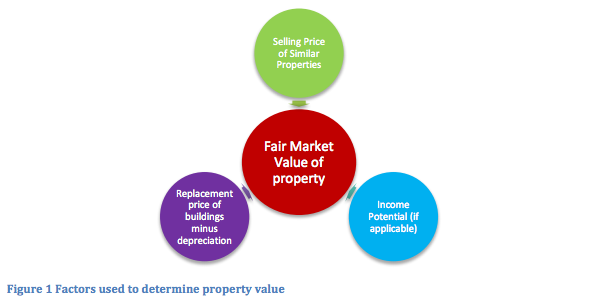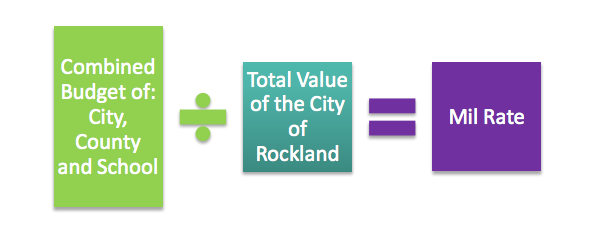Incorrect Letter Sent to Commercial Owners
Please be aware that on April 12, the company that the City of Rockland has hired to perform our Revaluation—Vision Government Solutions—sent a letter to owners of commercial, industrial, and [...]

The Tax Assessor is responsible for discovering, describing, and determining property value of all real and personal property subject to property taxation
View Tax Maps
View Tax Bills
View Documents, Forms & Maps
Access Property & Zoning Database
View Assessing Department Useful Links
View Current Rockland Tax Information
2025 Revaluation
By Charter and city code, the Assessor is appointed by the City Manager. The Assessor must be certified by the State of Maine, Bureau of Revenue Service as being a fully certified assessor. The Tax Assessor is responsible for discovering, describing, and determining property value of all real and personal property subject to property taxation, and must comply with Maine State Statutes, primarily to MRSA § 36. The Assessor's records contain prior ownership information, building characteristics, selling prices, copies of deeds, tax maps, as well as aerial photographs. The city maintains these records to enable appropriate assessment of properties for tax purposes. By law, the assessor is required to conduct ratio studies annually to maintain an accurate assessment of city values.
All of the actions of the Assessing Department set the value of the city for both real and personal property in a fair and equitable manner to distribute the tax burden. Nearly everyone feels the burden of paying taxes, either directly or indirectly. Therefore, it is important to demonstrate both an equitable and understandable system for determining property value and the true costs of government, which are the basis for property tax action. Local property taxes generate the income used to help finance and support all aspects of the city including:
For property owners the one or two large property tax payments each year feel more painful than sales tax, which is paid in small amounts every time you make a purchase, or income tax, which is paid weekly or biweekly in payroll deductions. Therefore, it’s important for property owners to understand how their tax rate (or mil rate) is determined in order to better articulate the value of services their tax dollars buy. Property tax is applied to the value of properties by April 1st each year. Maine law requires the tax assessor to determine property value as accurately and equitably as possible based on its “just value” or fair market value. This is determined through the following:
Each mil on the property tax rate represents $1.00 in taxes for every $1,000 in property value. Therefore, if your home is valued at $150,000 and the mil rate is $20, your tax bill will be $3,000. If the mil rate were $15 you would pay $2,250.
While determining the value of property and the tax rate may seem straight forward there are a number of factors that must be taken into consideration including:
When it comes to generating income for the City of Rockland, the Assessing Department is the backbone. If the valuations are too low or too high, it could lead to many significant issues in the city. This would impact tax collection, liens, tax payer contact info, state valuation, reimbursement of BETE, homestead, veterans and all other exemptions. In the event that the valuations were deemed indefensible, it would create litigation that is costly and time consuming. As an example in the past there was an abatement request for over $2.5 million. A month of research and requesting supporting documentation, answering emails, meetings etc. was put into the refutation of the request, which the City successfully defended.
Fair market value of property is the only method that the city has to apportion the costs of local government, schools and county government fairly.


City of Rockland Tax Information
| Tax Year | July 1st to June 30th |
| Assessment Date | April 1st |
| Commitment Date | 8/18/2023 |
| Total Taxable Valuation | $910,296,482 |
| Tax Levy | $22,092,896.00 |
| Tax Rate | $24.27/$1,000 of assessed valuation |
| Interest Rate | 8% |
| Certified Ratio | 94% |
| Due Dates | 09/29/2023 & 03/15/2024 |
| Abatement Deadline | 2/19/2024 - 185 days from Commitment Date |
This section is to answer some of the frequently asked questions about the Assessing Department and its services. If you do not find the answer here please feel free to call us (207) 594-0303 or ask your question online.
You can view or download specific property tax information by viewing files within the ‘Tax Bills‘ folder in the Assessing Department’s Document Library.
You can easily access property cards via the City’s online property and zoning database, which contains all property cards and property data.
This information can be found on property cards within the online property and zoning database.
Each property owner’s responsibility for their part of the town’s annual budget is assigned to them according to the value of their property. This “share” is calculated by multiplying their individual property’s valuation by the tax rate. For example, if the value of your property is $150,000, this number is multiplied by the tax rate (.017) to determine a tax bill of $2,550.
The City Council and School Board approve annual budgets to pay for services in the coming year. The tax rate—sometimes called the mil-rate— is calculated by dividing the town’s total taxable assessed property value by the amount needed to be raised (the budget, net of other revenues).
For example: $915,000,000 value of all taxable properties in town/ $21,000,000 to be raised = $.02295 tax rate. Thus each dollar value of property would be assessed $.02295; or, as more commonly expressed, property would be assessed at $22.95 per thousand. (These numbers are for the purpose of an example only).
To find out how much you owe in property taxes please contact the City’s Tax Collector.
To find out how much you owe in excise taxes please contact the City’s Tax Collector.
There are a number of factors used to determine how improvements to your home will impact its tax assessed value. Some of the following include:
For more specific information on how planned improvements may impact your property value we recommend you set up an appointment with the Assessor.
No. You may either decline or ask to set up an appointment for another time that is convenient to you.
No. In Article 9 section 9 of the State constitution we find that “the legislature shall never, in any manner, suspend or surrender the power of taxation”. This has been widely interpreted by the courts as meaning that only the legislature can add or remove rules for real estate taxation. Having said this, the State does provide a few vehicles for reducing one’s taxes, for example the Tree Growth program or the Farm and Open Space program. Also, the town could purchase the property in question and thus make it exempt from taxation (this does have the effect of raising everyone else’s taxes by removing the property from the tax roll.)
The most frequent cause of value change is a change in the general real estate market. As demand for property goes up, prices tend to go up. As demand decreases, so do prices.
An individual property can also change in value due to changes to the property itself. If something is added, such as a garage, bedroom, or pool, the value increases. On the other hand, fire, demolition, or depreciation from poor maintenance can decrease value.
Sometimes external economic forces can also change value. For example, if a major employer leaves town it tends to depress the local economy and thus property values. In another case, homes that have always been on a dirt road will increase in value if the road is improved and paved, creating better access. Times of general inflation also drive up property values.
The citizens establish market value through their ongoing transactions of buying and selling property. It is the duty of the assessor to study these sales transactions and appraise properties accordingly.
Property tax administration is guided by the State Constitution, Title 36 of the Maine Statutes, and a body of case law that interprets these Statutes. Assessment practice is NOT guided by local ordinance. The Assessor is charged with establishing a list of all properties in town and estimating their market value.
For more information on State property tax law, visit http://janus.state.me.us/revenue/
The amount of one’s tax bill is determined by the size of the budget, which is established by the Council and the School Board. The Assessor does not determine the budget or collect the taxes.
On the other hand, the property owner’s proportionate responsibility for that budget is determined by one’s property valuation. If the owner believes that the current value placed on their property is inaccurate, unfair, or overvalued relative to the current real estate market, they may take the following steps, in order:
The homestead exemption is a Maine State program that provides a measure of property tax relief for certain individuals that have owned homestead property in Maine for at least 12 months and make the property they occupy on April 1 their permanent residence. Property owners would receive an exemption of up to $25,000 on the tax assessed value. For more information please visit Maine Revenue Services: http://www.maine.gov/revenue/faq/homestead_faq.html
The due dates are set each year by City Council Bills are usually due toward the end of September and the beginning of March. Each property owner pays part of his or her bill by each of these dates.
You can view recent tax bills by visiting the following link: Rockland Tax Bills
You can find all of our tax maps for viewing, downloading and printing on the Rockland Tax Maps page.
The City Council, School Board and County Commissioners approve annual budgets to pay for services in the coming year. The tax rate is calculated by dividing the amount needed to be raised (the budget, net of other revenues) by the town’s total assessed property value.
The Assessor visits properties to assure the accuracy of the data on the property record cards, which are used to formulate each assessment.
There are a lot of factors that are considered when determining the tax assessed value of a property including the fair market value, the overall quality of the property, property values, square footage, home features and market conditions. Many of these calculations are computerized and based on real estate data in the neighborhood and surrounding area. However, Rockland’s Assessing Department performs fieldwork annually to verify information that impacts property values, such as new buildings and property improvements.
For more information specific to how the value of your property has been calculated please contact the Assessor.
Here are a list of some of the commonly used Assessing Department documents, forms & maps. Note that you can also obtain these forms directly from the Assessing Department. If you do not find the document or form you are looking for, please feel free to call us (207) 594-0303 or request your document online. If you are having trouble searching tax bills, please visit the Rockland Tax Bills page directly.
The Tax Assessor is responsible for discovering, describing, and determining property value of all real and personal property subject to property taxation, and must comply with Maine State Statutes, primarily to MRSA § 36. The Assessor's records contain prior ownership information, building characteristics, selling prices, copies of deeds, tax maps, as well as aerial photographs. The city maintains these records to enable appropriate assessment of properties for tax purposes. By law, the assessor is required to conduct ratio studies annually to maintain an accurate assessment of city values.
In addition the assessor is required to provide the State Tax Assessor with a list of land values, buildings values, and other improvements, along with a statement as to the percentage of current just value that the assessments are based on, no later than November 1st of each year or within 30 days after the commitment of taxes. The tax assessment ratio certified by the Assessor must be accurate within 20% of the last state valuation.
You can contact the Assessing Department using the details below or by completing the online form.
Office hours: Monday — Friday, 8:00am – 4:30pm (Closed public holidays)
(207) 594-0303
Assessing Department Office
Rockland City Hall, 270 Pleasant Street, Rockland, Maine 04841
Get directions